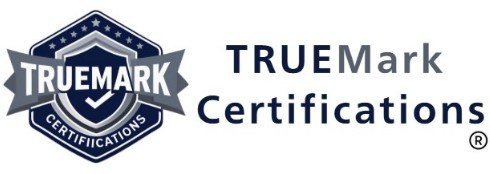Medical Certification Services
QMS specializes in providing certification services tailored to the medical and healthcare industry. These certifications ensure compliance with international standards, regulatory requirements, and industry best practices, focusing on quality, safety, and performance.
Key Medical Certification Services
ISO 13485 – Medical Devices Quality Management System
- Ensures quality and safety in the design, development, production, and servicing of medical devices.
- Helps meet regulatory requirements for medical device markets worldwide.
CE Marking for Medical Devices
- Mandatory for medical devices sold in the European Economic Area (EEA).
- Confirms that products meet EU safety, health, and environmental protection standards.
FDA Certification (21 CFR Part 820 – Quality System Regulation)
- Required for medical devices sold in the United States.
- Demonstrates compliance with the FDA’s quality system requirements.
MDR (Medical Device Regulation) Compliance
- Ensures compliance with the European Union's Medical Device Regulation (EU MDR 2017/745).
- Covers risk management, clinical evaluation, and post-market surveillance.
Good Manufacturing Practice (GMP) Certification
- Focuses on the consistent production and control of medical devices and pharmaceuticals.
- Ensures products are safe, effective, and of high quality.
ISO 14971 – Risk Management for Medical Devices
- Provides a framework for identifying and mitigating risks associated with medical devices.
- Supports compliance with global regulatory standards.
ISO 15189 – Medical Laboratories Accreditation
- Specifies quality and competence standards for medical laboratories.
- Ensures accurate, reliable, and timely diagnostic services.
ISO 14155 – Clinical Investigation of Medical Devices
- Provides guidelines for conducting clinical investigations of medical devices.
- Ensures ethical and scientifically valid practices.
Sterility Certification
- Verifies that medical devices meet sterility standards such as ISO 11737.
- Ensures compliance with hygiene and sterilization protocols.
Training & Consultancy Services
- Training programs for medical device manufacturers and healthcare organizations.
- Consultancy on regulatory compliance, documentation, and process improvements.
Certification Process for Medical Services
Phase 1: Initial Consultation
- Understand the client's product range, manufacturing processes, and intended market.
- Identify applicable standards and regulatory requirements.
Phase 2: Documentation Review
- Evaluate technical files, risk management plans, and quality manuals.
- Assess compliance with regulatory and certification standards.
Phase 3: Audit Stages
Stage 1 – Pre-Audit
- Preliminary assessment of systems and documentation.
- Identify gaps and provide recommendations for corrective actions.
Stage 2 – Certification Audit
- Comprehensive on-site evaluation of processes, quality systems, and risk controls.
- Review testing results, clinical evaluations, and regulatory submissions.
Phase 4: Compliance and Corrective Actions
- Address non-conformities identified during the audit.
- Submit evidence of corrective actions for review.
Phase 5: Certification Issuance
- Certificates are issued upon successful completion of all audit phases.
- Includes CE marking, ISO certification, or FDA compliance, as applicable.
Phase 6: Surveillance and Renewal
- Conduct periodic surveillance audits to maintain certification validity.
- Support clients in adapting to new or updated regulatory requirements.
Benefits of Medical Certification Services with QMS
- Access to global medical device markets.
- Enhanced trust and credibility among stakeholders.
- Improved product safety, reliability, and regulatory compliance.
- Competitive advantage in tenders and partnerships.
- Reduction in risks and liability through robust quality management systems.
